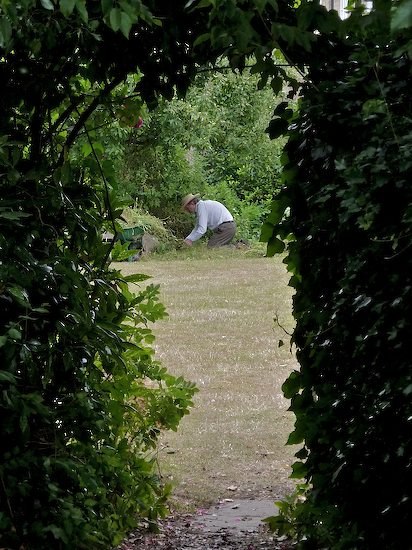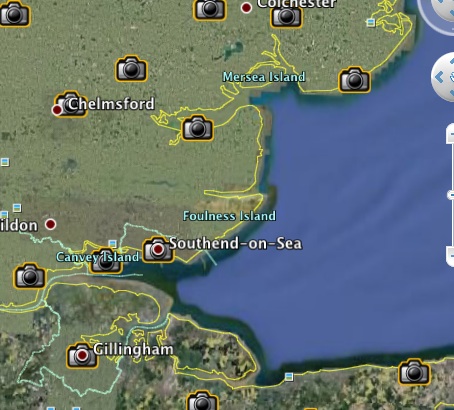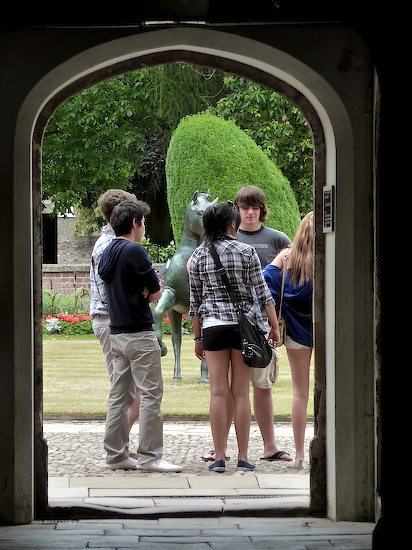
Today is the opening round of the 2010 British Open. It’s being played at St Andrews, site of the Royal & Ancient Golf Club, and tiresomely billed by the media with mock-reverence as “the home of golf”. Until this morning, their commentary was dominated by speculation about whether Tiger Woods’s swing has recovered from his various extra-marital flings. But now we have a new hero — Maurice Flitcroft, the worst golfer ever to compete in the championship.
I have to confess that I’d never heard of him until Radio 4’s Today programme had an item pegged to a newly-published biography with the lovely title The Phantom of the Open. Naturally, I went straight to Wikipedia, which has an interesting entry on him.
with the lovely title The Phantom of the Open. Naturally, I went straight to Wikipedia, which has an interesting entry on him.
 It describes him as a “chain-smoking crane driver” from Barrow-in-Furness in Lancashire who also claimed to be a stunt diver. “I toured with a revue, and I used to jump into a tank on the stage, I was a stuntcomedy high diver. The revue used to tour all the country and I would dive into this tank. It wasn’t all glass, just the front so the spectators could see what was going on under the water.” His golfing fame stems from conning his way into the qualifying round for the 1976 Open by pretending to be a professional golfer. He wrote off to the R&A for an application form. This required the applicant to state whether he was an amateur or professional golfer. If the former, then he would be required to state his club handicap. But of course Flitcroft wasn’t a member of any club, and so he ticked the ‘Professional’ box and sent it off.
It describes him as a “chain-smoking crane driver” from Barrow-in-Furness in Lancashire who also claimed to be a stunt diver. “I toured with a revue, and I used to jump into a tank on the stage, I was a stuntcomedy high diver. The revue used to tour all the country and I would dive into this tank. It wasn’t all glass, just the front so the spectators could see what was going on under the water.” His golfing fame stems from conning his way into the qualifying round for the 1976 Open by pretending to be a professional golfer. He wrote off to the R&A for an application form. This required the applicant to state whether he was an amateur or professional golfer. If the former, then he would be required to state his club handicap. But of course Flitcroft wasn’t a member of any club, and so he ticked the ‘Professional’ box and sent it off.
He went round in 121 — 49 over par and the worst score in the history of the tournament. One reporter memorably described it as “a blizzard of double and triple bogeys marred only by a solitary par”. He was christened “The Royal & Ancient Rabbit” (a ‘Rabbit’, in golfing parlance, is an incompetent player who hacks his way around the course, rarely if ever getting even close to a par).
Predictably, the R&A — as reactionary an assembly of Establishment boobies as ever wore blazers, and an institution that makes White’s look like the Bauhaus — was Not Amused, and so tried to ban him from further championships. But according to Wikipedia he entered several more times under pseudonyms: Gene Paceky (as in paycheque), Gerald Hoppy and James Beau Jolley.








